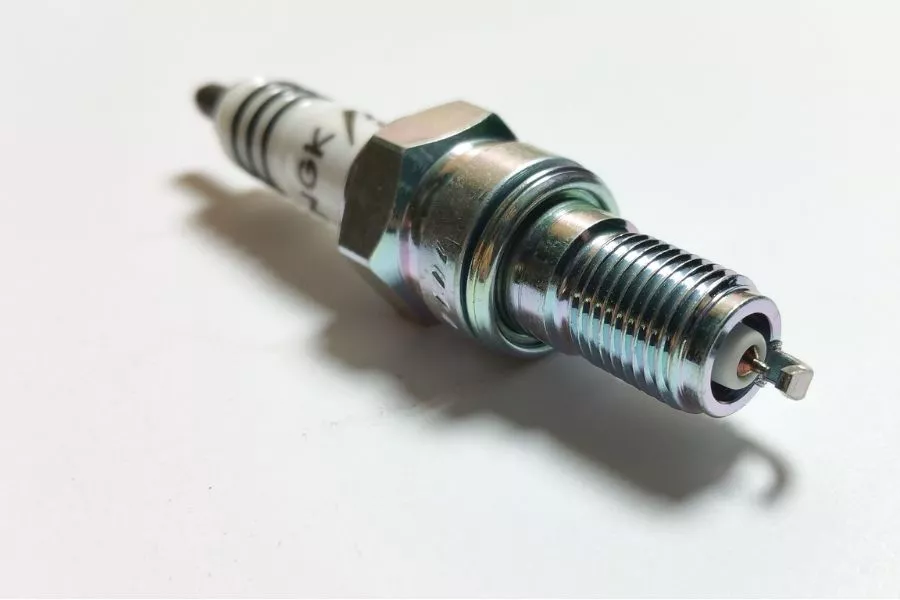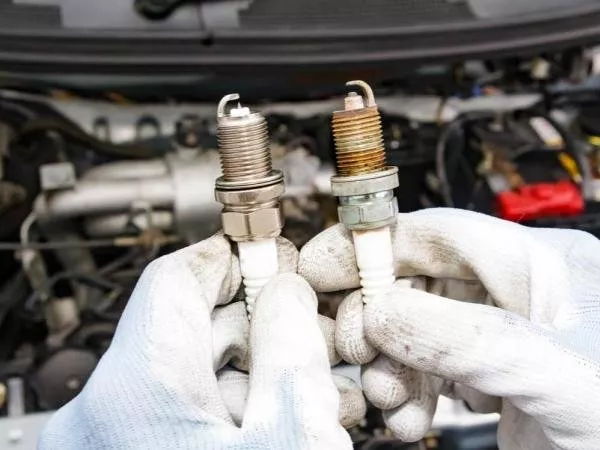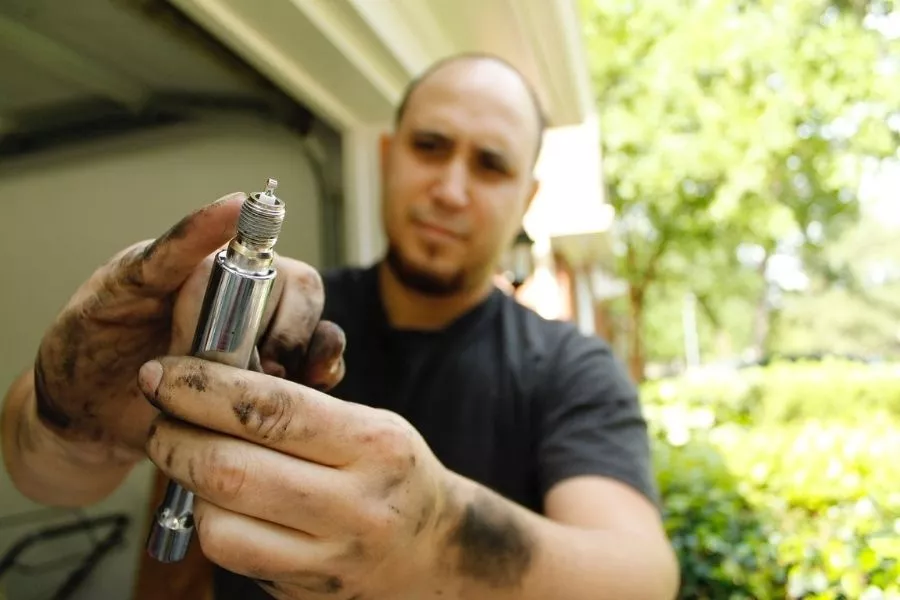The purpose of a spark plug is to supply spark to the combustion chamber to ignite the fuel/air mixture from the intake manifold. It is essential in keeping the engine running, especially for automobiles that are manufactured with a gasoline engine.
As for vehicles with a diesel engine, they don’t require a spark plug as they rely only on high compression to ignite the fuel/air mixture. It is important to keep spark plugs clean, considering that these tend to get dirty with use due to the carbon deposits they accumulate during engine operation.
If you drive a car with a diesel engine, then lucky for you as spark plugs are the least of your concerns. But for those that drive a gasoline-powered car, we have listed down four best ways you can do to clean your car’s spark plugs to help ensure efficient combustion within the engine cylinders.
4 ways to clean spark plugs
Before removing the spark plugs in your car, first disconnect the negative terminal of your car’s battery for safety reasons. Although it is unlikely that spark plugs will produce a high voltage when the engine is turned off, we still recommend that you take precautionary measures when handling these components.
Method #1: The brushing method
The most common way of cleaning a spark plug is by using a wire brush. Scrape all of the unwanted debris off the spark plug to make it cleaner. You can use a table vise clamp so your hands won’t get fatigued from all the scraping you’ll be doing on your spark plugs. If you have the extra budget, you can also invest in an electric wire brush so you can clean your spark plugs faster and more efficiently. Some people spray WD-40 or gasoline to the debris on the spark plugs to loosen them.

Use the right tools in cleaning your spark plugs such as a dedicated wire brush
Method #2: Blow torch
Your car’s spark plug is prone to high temperatures as it sits within the cylinders, so using a blow torch won’t damage the component. If you decide to go for this method, grab a pair of pliers (preferably long nose) to safely hold the spark plug away from you. You don’t want to use your hands when doing this method as the spark plugs will get extremely hot.
Once you have your pliers, start using the blow torch on the spark plug. What this method does is it burns away any excess oil, gasoline, and carbon deposits present in your spark plug. You should do this for a minute or two until the debris is gone. Do not cool the hot spark plug off with water or any other liquid, as the sudden temperature change can cause cracks. Let it sit on any surface before installing it back to the cylinders.

Keeping your spark plugs clean can extend their lifespan
Method #3: Ultrasonic Cleaner
Cleaning your car’s spark plugs using an ultrasonic cleaner is perhaps one of the easiest methods to do the job. However, the price for an ultrasonic cleaner can range from Php 5,000 to Php 7,000 for the top-rated products. If you run an automotive shop or just love doing projects, this can be a good investment to make cleaning jobs easier.
Fill your ultrasonic cleaner with water and your chosen cleaning concentrate. Dip the fouled spark plugs in the mix and let the ultrasonic cleaner run for around 15 to 25 minutes at 50 degrees Celsius. This should remove all the carbon deposits and other debris on your spark plugs without you putting in much effort. Let the spark plugs dry first before installing them back to the cylinders.

Fouled spark plugs can cause engine damage in the long run
Method #4: Soda and salt
Yes, you read that right. Using soda with a little bit of salt can help you clean your car’s spark plugs. Many automotive parts can be cleaned by soda as well, such as dirt on your car’s exterior and other components that form rust. With this, you don’t need to visit your local automotive shop to buy a dedicated cleaner.
To start, get a container where you will place your spark plugs. Once the components are in, pour soda until the spark plugs are submerged. Add a generous amount of salt for a better result. This method is quite time-consuming, depending on the carbon and rust build-up on the plugs, so it’s best to do this if you are not in a rush. Finish off by brushing the spark plugs with a wire brush.

A clean spark plug can provide a more efficient engine operation
Replacement costs for spark plugs
The replacement of spark plugs is one of the most affordable maintenance items on your car. What’s better is that spark plugs tend to last for quite some time, especially if you look after them once they show early signs of failure. Spark plugs last for around 40,000 km to 50,000 km, or around two to three years.
You can practice cleaning them with the methods above if you don’t feel like frequently visiting your local automotive shop for spark plug replacement. But if you decide to replace your spark plugs, you can expect to pay around Php 400 to Php 600 for a set of four spark plugs. Labor costs range from Php 100 to Php 250, depending on your chosen automotive shop.

The more cylinders on an engine, the more spark plugs it needs
FAQs about spark plugs
Q: How long do spark plugs last?
Spark plugs tend to last for around 45,000 km, or around two and a half years of daily driving.
Q: What happens if I drive with bad spark plugs?
Driving with bad spark plugs can cause an engine misfire, resulting in bad fuel economy and engine damage.
Q: Can I clean spark plugs without removing them?
You need to remove your car’s spark plugs before cleaning them to gain access to the carbon deposits.
Q: What causes carbon deposits on spark plugs?
Spark plugs ignite the fuel/air mixture constantly which builds carbon over time.
Q: How much is a spark plug in the Philippines?
A set of four spark plugs in the Philippines costs around Php 500.
Here at Philkotse.com, we value your interest in the automotive industry. Visit our website to find out more.
Recent posts
- Car maintenance: How to check the engine's good coolant level Nov 30, 2022
- Diagnose the signs of a bad car spark plugs Jun 09, 2021
- Causes and remedies for overheating automobile engines Mar 06, 2021












